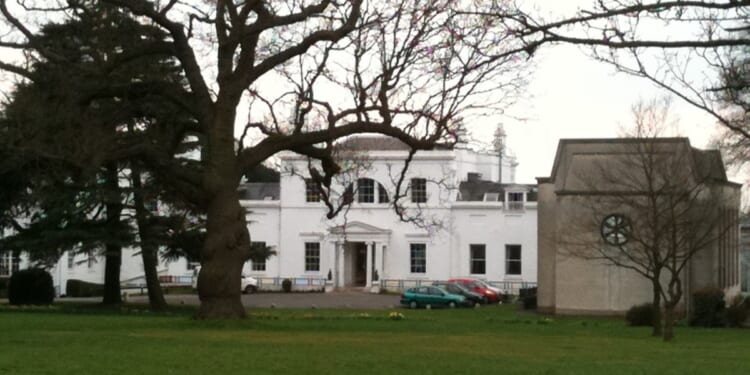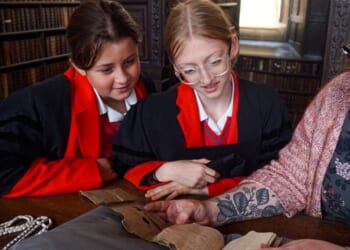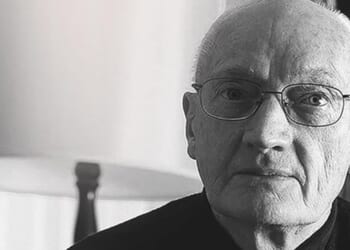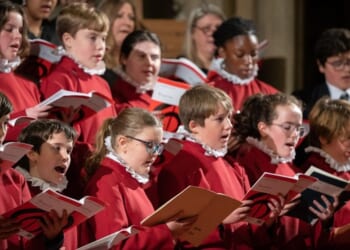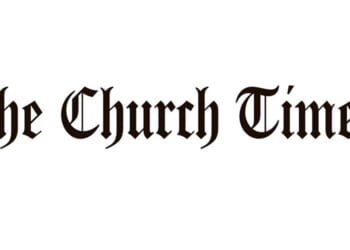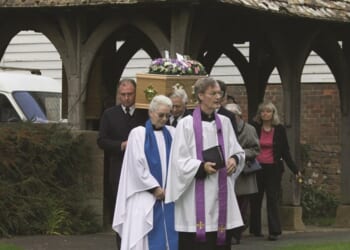RESTORATION, forgiveness, and healing are needed at Oak Hill Theological College after recent “difficult times”, an organisational-health review has concluded.
It follows the departure in 2023 of the Revd Johnny Juckes as College President (News, 6 April 2023), but the Church Times understands that the concerns raised by staff which prompted the review do not pertain only to Mr Juckes’s leadership, but also to the conduct of another member of the current leadership. In the past three years, 15 staff members have left, including two of the three women on the teaching faculty. One resigned with a settlement, and one was on a fixed-term contract.
The College Council has decided not to make the review public. A summary and “lessons learned” were shared with former students in July. This document — seen by the Church Times — says that the unnamed independent reviewer found that the college was a “significantly healthier place than it was 18 months ago”. But it also identified “a number of areas that, while not shared by everyone, felt important to address for the long-term wellbeing and flourishing of the College community”.
These concerned: “Council operations, the need for reconciliation and healing in some working relationships, relationships between departments, internal and external communications, giving and receiving feedback, professional working practice, disposition towards others.”
The review was commissioned by the college Council and leadership team in November 2024, a year after the appointment of the Revd Dr James Robson as Principal. The summary document acknowledges that “some stakeholders may express a desire that the review be something different than the one it is (e.g., involving different people, making the review public).” Concern has been expressed that, after a high level of turnover, no former staff members were invited to take part.
In March 2023, the college issued a statement praising Mr Juckes’s “many strengths” and stating that he had left of his own accord and received no formal or informal warnings. But it acknowledged that “issues to do with Johnny’s leadership were raised. It is not the case that everyone who worked closely with Johnny felt this, but others rightly used the College’s routine processes of review and reporting to highlight issues they saw with his leadership effectiveness, or how he handled particular situations and interactions.”
These concerns “do not include issues of scandal, nor are they of a safeguarding nature”, it said. While progress had been made in the use of “various mechanisms to help Johnny address these areas”, he had, nevertheless, decided that “a fresh leader was needed to lead the College forward into its next season”.
The summary document seen by the Church Times states that the organisational-health review was “not meant to be an investigation into significant misdemeanours or allegations”, but that there had been “a strong and clear recognition that the college has been through some difficult, well publicised, times in its recent past”.
The first recommendation was “to pause, acknowledging the season we have been in and the need, in some areas, for restoration, forgiveness and healing”, it says.
“We have been doing this together as a staff team. Since then, a number of actions have already taken place; some new practices have been introduced, while others involve establishing a representative staff working group to address them.”
The lessons set out in the summary have been “extrapolated from the conclusions”, the document says. “It is important after seasons of challenge and tension to take time to pause together, speak openly and honestly about the challenges and issues raised and, with postures of humility and kindness, look to reconciliation and towards forgiveness. This isn’t easy and takes time and in some cases, mediation, but is ultimately, as a place which wants to be marked by grace and forgiveness, essential to the ongoing health of an organisation.”
The document says that “It has been hard to work out what to share and how. We want to be people of integrity who honour our word to those who contributed and preserve confidentiality. . . In many ways it would be easier to say nothing.”
The decision not to publish in full was taken “to foster maximum openness, because of our duty of care as an employer to all staff, and because the reviewer did not seek to establish the accuracy of comments nor give people a chance to respond to what was said”.
This week, a college statement said: “As a College we value our strong Christian ethos where kindness flourishes and there are positive relationships. There will be occasions when concerns are raised with us about a member of staff, and we encourage a culture which enables issues to be raised and effectively addressed. In such circumstances we manage concerns in a way which is fair to all concerned, and in line with due process. We need to respect the confidentiality of all our employees and any third parties and have a duty to minimise gossip, rumour or speculation.”
Staff turnover had been higher in the post-Covid era and the college had been “disappointed” by that, it said. “The Review helpfully explained some of the potential reasons for a higher turnover. It also identified progress and issues that require further attention, which we have been working on.”
It is understood that concerns were raised at a meeting with former students in September about a lack of transparency. Former students sought clarification about what had happened at the college, and whether NDAs had been used among staff.
This week, Dr Robson declined to comment on whether there were current concerns about a member of the leadership team concerning bullying behaviour towards female staff.
The college statement said: “Since the new leadership team has been in place the college has not requested any confidentiality and non-disparagement clauses in settlements.” A clause “resembling a confidentiality and non-disparagement clause did find its way into an early draft, this was never the intention,” it said. “Once this concern was raised, the wording was adjusted accordingly. Revising wording is a standard part of the negotiation process in complex, private employment matters.”
The Periodic External Review (PER) of the college carried out by the Ministry Council in 2022 highlighted that only two of the 12 members of faculty were women and that all eight visiting lecturers were white men. The college was “actively engaged” in addressing this, it said. The review team was “impressed by the leadership and management” of the college and had heard “overwhelmingly positive comments from stakeholders”.
There are currently one woman on the leadership team of five and two women on the college Council of ten. The teaching faculty of 12 now includes one woman.

